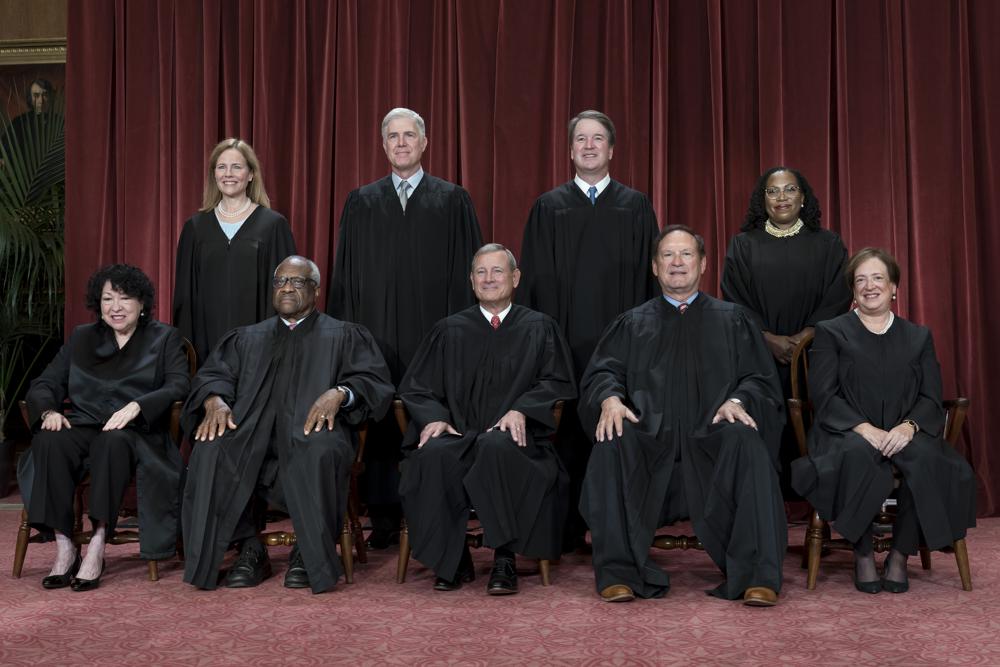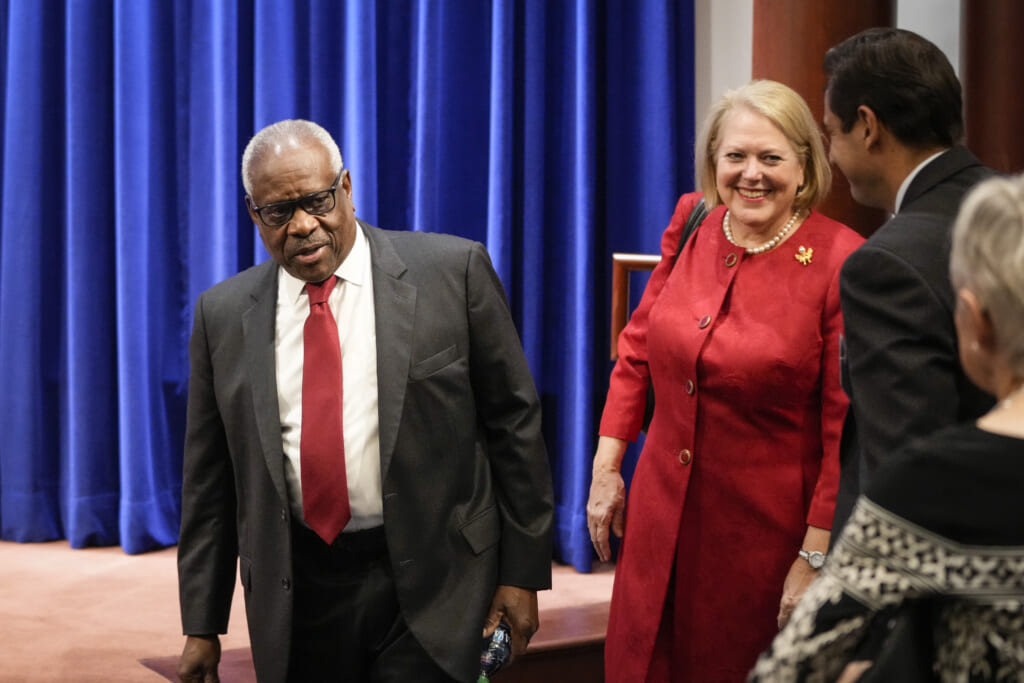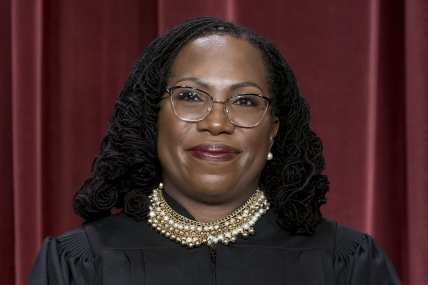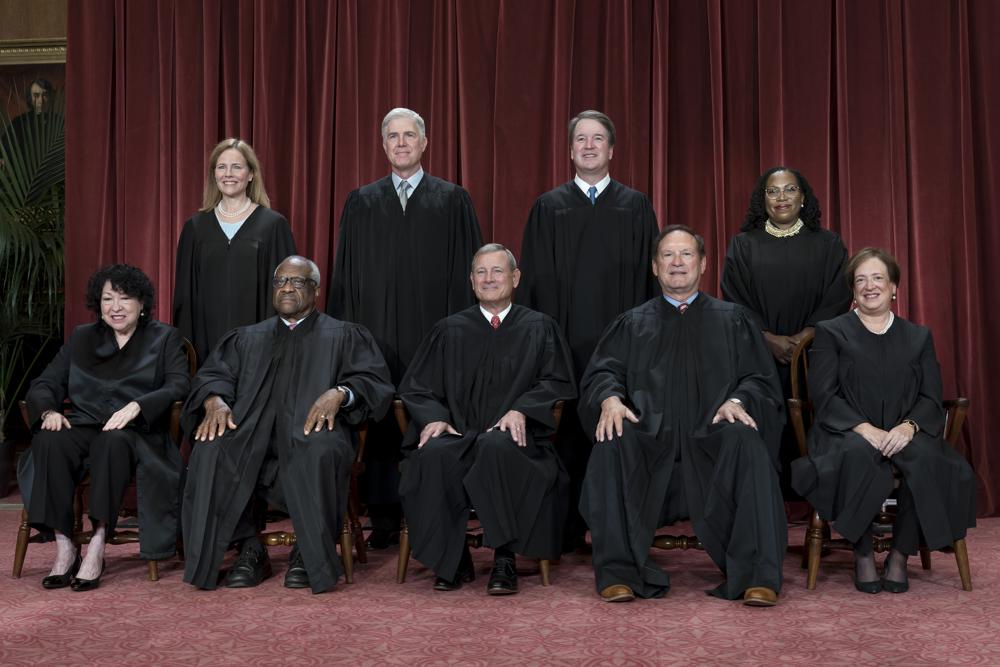Groups demand Supreme Court adopt a code of ethics amid ‘waning’ public trust
“[The justices] are blind to the fact that the public's faith in the institution is waning,” said Sarah Turberville, director of the Constitution Project at the Project on Government Oversight.
Many organizations are demanding the Supreme Court adopt a code of ethics to preserve its integrity.
The Project on Government Oversight (POGO), a non-partisan independent watchdog based in Washington, D.C., is amongst several groups that have proposed a set of ethical rules for the justices to follow.

Sarah Turberville, director of the Constitution Project at POGO, told theGrio that her organization has advocated for the Supreme Court to adopt “stronger ethical standards” for “self-preservation.”
“[The justices] are blind to the fact that the public’s faith in the institution is waning, and the public’s faith is the only thing that gives the court’s ruling any force of law,” she said.
Turberville said the high court’s lack of a code of conduct “diminishes the public’s faith in the court as an institution [and] as a fair and impartial arbiter of the law and of justice.”
According to a Gallup poll conducted in September 2022, more than 50% of Americans said they did not have much trust and confidence, or not at all, in the judicial branch headed by this current Supreme Court.
Last month, the American Bar Association (ABA) demanded the court adopt a set of ethical rules similar to those used by federal judges.
ABA President Tahmina Watson wrote a resolution that stated, “The absence of a clearly articulated, binding code of ethics for the justices of the Court imperils the legitimacy of the Court.”
Watson added, “If the legitimacy of the Court is diminished, the legitimacy of all our courts and our entire judicial system is imperiled.”
The groups advocating for the Supreme Court to adopt a code of ethics are concerned that justices have ruled in cases where there has been an issue of conflict of interest and suggest justices recuse themselves from such cases to maintain the appearance of impartiality.
This rule would have prohibited Justice Clarence Thomas from participating in hearing oral arguments in Trump v. Thompson. In that case, the Supreme Court rejected former President Donald Trump’s request to stop the House January 6 Select Committee from acquiring White House records related to the 2021 Capitol attack.

Donald Sherman, senior vice president for Citizens for Responsibility and Ethics in Washington, wrote an op-ed titled “It’s time the Supreme Court adopted a binding code of ethics” and asserted that Thomas should have recused himself from the case because his wife “had a direct interest in that case.”
“Ginni Thomas had been communicating with Mark Meadows and other senior White House aides about overturning the election. Her communication with the White House, and particularly communications about her outreach to that effect, could have been among the documents at issue,” Sherman wrote.
Turberville also believes justices should step aside when “a justice knows or should know that a party to a [case] supported the justice’s nomination and that that support would cause a reasonable observer to doubt that the justice could rule impartially, then we think the justice needs to step aside.”
Last year, the House Judiciary Committee advanced a bill that would hold justices to a code of ethics; however, it was met with opposition by House Republicans.
In the past, justices have also refused to adopt a set of ethical rules. Chief Justice John Roberts stated that the Supreme Court should not have to adhere to a code of conduct but instead govern itself.
Sherman told theGrio the justices believe “they’re above” having to adhere to a code of ethics.
“That’s the only logical reason,” he said.
He continued, “I think they view themselves as being the best arbiters of whether there is a conflict or whether there is an ethical issue and don’t feel like they should be bound by any independent enforcement structure.”
TheGrio is FREE on your TV via Apple TV, Amazon Fire, Roku and Android TV. Also, please download theGrio mobile apps today!
More About:Politics











